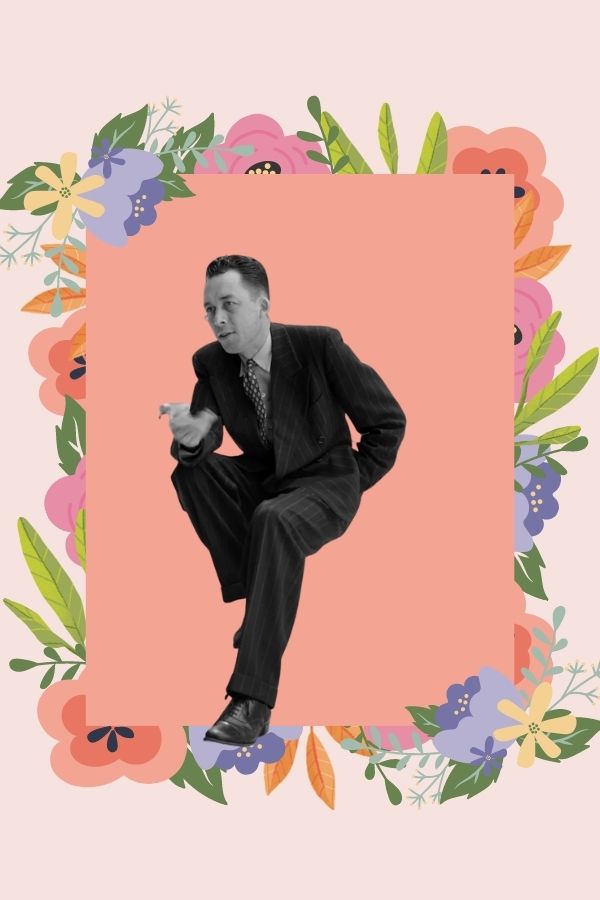- Home
-
Shop All
- Bible Verse & Christian
- Black & White Art Prints
- Book Lover Quotes
- Feminist Quotes
- Book Quote Mugs
- Fine Art Quote Prints
- Inspirational Wall Art
- Jane Austen Quotes Prints
- Jane Eyre & Bronte Art
- Love Poems & Quotes
- Minimalist Art Prints
- Nursery Decor Prints
- Other Options & Custom
- Poetry Quote Art
- Shakespeare Quotes Prints
- Travel Quote Art
- About
- Blog
- Track Order
- Contact Us

Albert Camus: An Invincible Writer
Despite having died over 60 years ago, Albert Camus’ writing remains as startlingly relevant as if he had written them yesterday. Even his photograph has become iconic, his image synonymous with intellectualism and French ennui. Over the years, his books have been misconstrued as depressing and nihilistic. They often raised uncomfortable questions and touched on universal truths. Many things we do in life can be futile, but it is within our power to choose to live and live our lives to the full. His own life was full and varied and cut short far too soon. Here is a short round-up of some Albert Camus facts that you might not know.
He was raised in Algiers by a French mother. Algeria was a French territory from 1830 to 1962. Both his parents were French and Camus himself was French citizen as well. His family were quite poor. He won a scholarship to a lycée (French high school), which he attended part-time whilst supporting himself with various jobs. During this time he lived with his uncle, who was his first introduction to Philosophy and writers such as Nietzsche. He went on to receive a degree in Philosophy at the University of Algiers.
He was in the French resistance during the Second World War. He was unable to join the French army due to teenage tuberculosis, so he joined the resistance and worked as a journalist in Paris. He was the editor of a banned journal, Combat. He continued to work there after the war and his writing brought him a lot of fame and notoriety in Europe and the USA.

He was award the Nobel Prize for Literature in 1957. At 46 years old, he was the second youngest person to ever receive it, the youngest being Rudyard Kipling at 44 years old. He used the prize money to fund a stage play, his adaptation of Dostoyevsky’s Demons.
He died at the age of 46 in a car accident, along with his publisher. They were en route to Paris when they struck a tree. Their families had travelled separately by train. The unusual circumstances surrounding the accident has lead some to speculate that he was killed by the KBG, due to his outspoken criticism of the Soviets and totalitarian communism. It has never been conclusively proven.
He is usually labelled an Existentialist, although he himself rejected that label often. One of his of his most famous works, The Myth of Sisyphus, was in part a criticism of some aspects of Existentialism. His views and writings reflected more the philosophy of Absurdism: the conflicts raised by the human need to seek meaning and ascribe value to life, and the difficulty of arriving at any conclusions with certainty. His book The Stranger follows a day in the life of a man whose life seems to have lost any apparent meaning. The protagonist’s violent act is absurd in its meaninglessness, and therefore his life has become in itself, absurd.
He is often mislabeled as pessimist and a Nihilist. While it is true that Camus explored the possibilities of human life with no inherent meaning, he posited that humans should embrace the absurdity of existence and the freedom that affords us to ask questions, to choose a life of our own instead of one that has been determined for us and to revolt against the oppression of the human spirit. His central question was, in an absurd world, why should we continue to live? Camus doesn’t tell us why. The reasons are ours to choose.

Some of my favourites inspirational quotes of Camus:
“In the midst of winter, I found there was, within me, an invincible summer.And that makes me happy. For it says that no matter how hard the world pushes against me, within me, there’s something stronger – something better, pushing right back.”

“The only way to deal with an unfree world is to become so absolutely free that your very existence is an act of rebellion.”
“Blessed are the hearts that can bend; they shall never be broken.”
Other articles:
Quick links
Search
FAQ
Privacy policy
Shipping Policies
Terms of service
OUR MISSION
At BookQuoteDecor.com, our passion is to redefine spaces through the magic of words. We're dedicated to selecting and crafting premium, literature-inspired decorations that do more than just beautify your environment—they honor the everlasting elegance of written language. Our goal is to weave the wonder of books into the fabric of your everyday life, with each meticulously chosen quote.


Leave a comment: